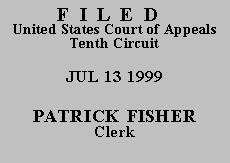

| UNITED STATES OF AMERICA,
Plaintiff-Appellee, |
|
| v. | |
| ISAIAS SOLIS, also known as Momia,
Defendant-Appellant. |
|
Solis was indicted on seven drug-related counts. In exchange for the government dismissing six of the seven counts, Solis pleaded guilty to one count of possession with intent to distribute approximately 222.5 grams of cocaine base. Prior to sentencing, Solis filed an objection to the presentence report claiming his criminal history category had been improperly calculated. At the sentencing hearing, the district court considered and rejected Solis' objection and sentenced him to 135 months' imprisonment (a sentence at the low end of the guideline range).
The government contends Solis' appeal should be summarily dismissed because, as part of the plea agreement, Solis agreed to waive his right to appeal. The written plea agreement signed by Solis and his attorney, and accepted by the district court states in pertinent part:
Supp. Vol. I, Doc. 29, Plea Agreement.
We agree with the government that the above-quoted language bars Solis from challenging the district court's calculation of his criminal history category. It is beyond dispute that "[a] defendant's knowing and voluntary waiver of the statutory right to appeal his sentence is generally enforceable." United States v. Hernandez, 134 F.3d 1435, 1437 (10th Cir. 1998); see United States v. Atterberry, 144 F.3d 1299, 1300-01 (10th Cir. 1998) (enforcing defendant's waiver of statutory right to appeal). Here, the record indicates, and Solis concedes, that he knowingly and voluntarily entered into the written plea agreement, and, pursuant to the language quoted above, waived his statutory right to appeal his sentence. The only exception to that waiver was if the district court departed upward from the applicable sentencing guideline range. Because the district court did not do so, that narrow exception is inapplicable.
The appeal is DISMISSED.
Entered for the Court
Mary Beck Briscoe
Circuit Judge
*.This order and judgment is not binding precedent, except under the doctrines of law of the case, res judicata, and collateral estoppel. The court generally disfavors the citation of orders and judgments; nevertheless, an order and judgment may be cited under the terms and conditions of 10th Cir. R. 36.3.